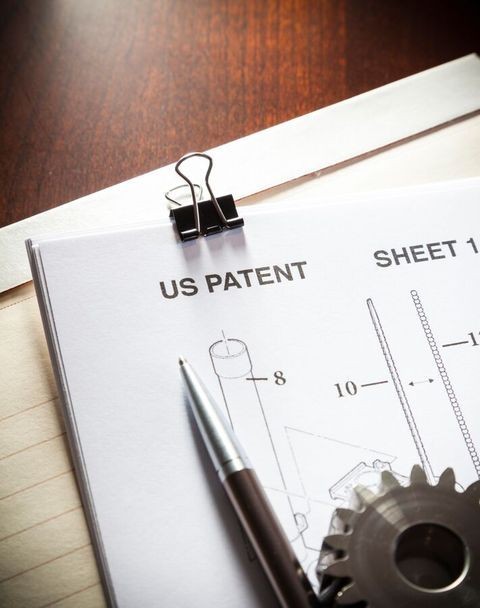Technology and IP
Overview
Technology is everywhere. It has a major and continuing impact on the way we work, and every business and organization must keep pace with the digital evolution and implement the best digital solutions they can. If they do not, they will struggle to remain competitive, let alone be ahead of the curve.
Our experience and thought-leadership in this area allows us to advise clients with business transformation needs and help them navigate the regulatory maze while looking at issues that involve copyright, trade secrets, patents, data protection, software protection, and online liability issues in the digital age.
Our clients entrust us with legal issues concerning the most recent technological developments such as artificial intelligence, the Metaverse, the Internet of Things, NFTs, smart (e)-mobility, and digital health.
Our strengths
We negotiate software license agreements, collaborative IT development agreements, outsourcing and other IT services agreements, and confidentiality and non-disclosure agreements. In addition, we are particularly active on behalf of our clients in the following developing areas:
We understand the challenges of internal collaboration and open innovation projects. We draft collaboration and data sharing agreements and help our clients to protect their valuable data and digital assets. Working in collaboration with our Privacy and Cybersecurity colleagues, we also assess the risks and opportunities related to the access and use of data and we help clients meet their regulatory obligations and navigate overlapping regulation (such as the GDPR, trade secrets protection, and copyright).
Our clients come to us with questions about their digital presence involving issues such as domain names and cybersquatting, ransomware, collaborating with influencers, and pitfalls to avoid in contracts with IT-providers or website builders. In addition, we assist clients with their online content. For example, we advise on the use of trademarks on social media, on how to deal with negative online reviews or false claims, on how to prevent the unauthorized use of celebrity names and images, and on the use of third-party content (hyperlinking, parody and mashups).
The Metaverse, generally understood to be a virtual 3D environment, or “parallel virtual world,” facilitates its users’ real-time transactions in the form of avatars. Connectivity is key, as the Metaverse enables core aspects of life. This new universe brings with it great opportunities for businesses, especially those in the entertainment sector, but it also brings risk related to legal uncertainty. We advise on the practical issues that affect companies wanting to make the most of this exciting platform. For example, we help advertisers navigate standard rights clearance for people and images and we have particular experience in complex matters concerning copyright and brand protection in the virtual world.
There have been significant developments in the digital health space in recent years. This technology is changing all aspects of the health care sector, from data analytics to precision medicine to clinical decision support to patient generated data and AI. Companies creating this digital future face an array of challenges, such as protecting users’ privacy, ensuring their product’s security, and developing a business model that works within a complex regulatory environment.
We provide comprehensive legal and commercial advice to companies in the digital health care sector (see also our specific Life Sciences capabilities). We also closely monitor European developments in this area, such as regarding a “European Health Data Space,” a health specific ecosystem the main aim of which is to strengthen the rights of natural persons regarding the availability and control of their electronic health data and to regulate the making available on the market or putting into service of electronic health records systems within the European Union.
Artificial Intelligence is a rapidly growing area and of particular importance to the digital health industry, where it is shaping diagnostics and the management of treatment. Though it has the power to revolutionize healthcare, creating a regulatory framework for AI is complex and challenging. We help our clients to protect their AI software with appropriate contractual provisions and to navigate the evolving regulatory landscape.
The Internet of Things (IoT) has revolutionized how businesses, consumers, and public infrastructure interact by connecting everyday electronic devices to the Internet and one another. Our IP lawyers, working in collaboration with our both our Privacy and Cybersecurity and our Corporate and Commercial law teams, help our clients to bring new IoT products to market by assessing the relevant data privacy and regulatory risks that these connected devices present.
Non-fungible tokens (NFTs) are digital assets that are associated to a token (metadata file working like a digital certificate of authenticity and ownership, registered on the Blockchain) capable of proving ownership and authenticity of an underlying asset. Unlike other cryptocurrencies, each NFT is unique. Various legal issues surround NFTs. For example, ownership of an NFT (the token) does not automatically imply ownership of the underlying asset: this has to be stipulated in the contract and will depend on the terms and conditions of the relevant Metaverse platform.
Contacts
Insights
Client Alert | 6 min read | 02.18.26
The CeramTec Case, or How to (not) Navigate the Patent to Trademark Transition
The Court of Justice of the European Union (CJEU) recently delivered its judgment in the CeramTec case (C-17/24).
Speaking Engagement | 04.28.25
“FRAND licensing: How the FRAND dance works,“ Young EPLAW Congress 2025, Brussels
Publication | 01.27.25
Sowieso sexy: queer stereotypen in generatieve artificiële intelligentie
Representative Matters
- Negotiated, drafted and reviewed data sharing agreements in the telecom sector for data aggregation and analysis for altruistic purposes.
- Reviewed contractual provisions re IP and trade secret protection of AI-software and data for an international IT consultancy group.
- Advised on contractual transparency requirements of an AI-based solution in audit project for federation of liberal professions.
- Advised a provider of software solutions in the automotive sector on the use of confidential industrial data.
- Drafted, reviewed and negotiated service contracts for several global IT consultancy services providers, which relate to software, software services and (personal and non-personal) data with a focus on responsibilities and liability, intellectual property, confidentiality and data protection.
- Provided strategic advice for growth, including the protection of their immaterial assets through model contracts, for several digital startups (turned scaleups) in data analytics (including Riaktr), IoT, AI-related activities and SaaS offerings.
- Negotiated and revised service contracts with a focus on service levels, penalties, liability and continuity of services (escrow, exit), for purchasers of IT services.
- Provided legal assistance in revising and negotiating contracts for new NFT-based exploitations (artist contracts, platform contracts), for an established music label.
- Assisted with contract negotiations in an asset deal of one of Europe’s largest car sharing platforms.
Contacts
Insights
Client Alert | 6 min read | 02.18.26
The CeramTec Case, or How to (not) Navigate the Patent to Trademark Transition
The Court of Justice of the European Union (CJEU) recently delivered its judgment in the CeramTec case (C-17/24).
Speaking Engagement | 04.28.25
“FRAND licensing: How the FRAND dance works,“ Young EPLAW Congress 2025, Brussels
Publication | 01.27.25
Sowieso sexy: queer stereotypen in generatieve artificiële intelligentie
Insights
Sowieso sexy: queer stereotypen in generatieve artificiële intelligentie
|01.27.25
Auteurs & Media, n°3, p. 326-331
- |
04.07.22
Crowell & Moring’s Trade Secrets Trends
Gathering evidence of trade secret infringement in Belgium: towards discovery-like measures?
|05.27.21
Crowell & Moring’s Trade Secrets Trends
- |
04.30.21
Crowell & Moring’s Trade Secrets Trends
Employees may come and go. But will your trade secrets follow them?
|04.01.21
Crowell & Moring’s Trade Secrets Trends
- |
03.08.21
Crowell & Moring’s Trade Secrets Trends
- |
03.02.21
Crowell & Moring’s Trade Secrets Trends
- |
02.22.21
Crowell & Moring’s Trade Secrets Trends
- |
02.15.21
Crowell & Moring’s Trade Secrets Trends
- |
02.08.21
Crowell & Moring’s Trade Secrets Trends
- |
02.01.21
Crowell & Moring’s Trade Secrets Trends
Insights
Client Alert | 6 min read | 02.18.26
The CeramTec Case, or How to (not) Navigate the Patent to Trademark Transition
The Court of Justice of the European Union (CJEU) recently delivered its judgment in the CeramTec case (C-17/24).
Speaking Engagement | 04.28.25
“FRAND licensing: How the FRAND dance works,“ Young EPLAW Congress 2025, Brussels
Publication | 01.27.25
Sowieso sexy: queer stereotypen in generatieve artificiële intelligentie
Practices
- Brussels Practice
- Intellectual Property — Brussels Practice
- Copyright — Brussels Practice
- Dispute Resolution — Brussels Practice/IP
- Patents — Brussels Practice
- Trade Secrets and Know-How — Brussels Practice
- Trademarks and Designs — Brussels Practice
- European Patents and Unified Patent Court — Brussels Practice
Contacts
Insights
Client Alert | 6 min read | 02.18.26
The CeramTec Case, or How to (not) Navigate the Patent to Trademark Transition
The Court of Justice of the European Union (CJEU) recently delivered its judgment in the CeramTec case (C-17/24).
Speaking Engagement | 04.28.25
“FRAND licensing: How the FRAND dance works,“ Young EPLAW Congress 2025, Brussels
Publication | 01.27.25
Sowieso sexy: queer stereotypen in generatieve artificiële intelligentie







